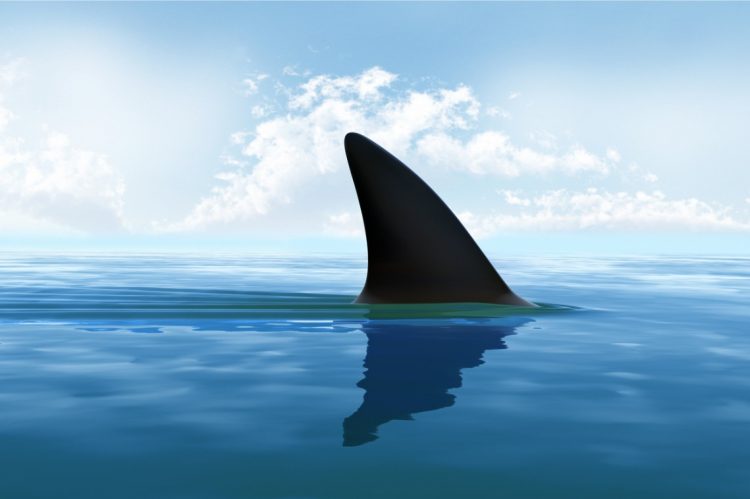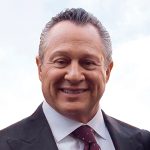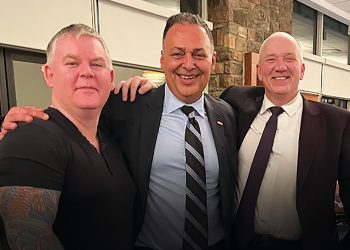During a recent industry event, I had the honor of hearing Daymond John speak about disruption and entrepreneurship. John is the founder of global lifestyle brand FUBU and a regular on ABC’s “Shark Tank.” He’s also been on LinkedIn’s list of Top 20 Voices and received Ernst & Young’s New York Entrepreneur of the Year award.
I was inspired by John’s no-nonsense approach to leadership and his story about launching FUBU. In 1992, he had just $40 in his pocket, which reminds me of that single dollar I had in my pocket at the start of my real estate career. John dreamed of becoming a hip-hop star, even though he couldn’t sing or dance, and so instead of taking voice or dance classes, John founded an urban fashion brand called For Us, By Us or FUBU. In his childhood living room, he’d sew FUBU hats and shirts, and his single mom supported his vision. When John’s request for funding was turned down by 27 banks, his mother told him, “ take all of the money we can out of the house” and secured a $100,000 loan. A few months later, that $100,000 turned to $500 and John was struggling. But like any iconic entrepreneur, he made it work. Today, FUBU has more than $6 billion in product sales.
John credits much of his success to acting like a SHARK. When John says “act like a SHARK” he doesn’t mean act like the multi-billion-dollar entrepreneurs who sit in armchairs and analyze the merit of the pitches they receive on “Shark Tank.” He means adopting a new kind of acronym that informs the way he runs his businesses and how he lives his life:
- S stands for “Set goals.” John’s initial goal was to become a hip-hop star, but goals can change, and leaders must adjust accordingly. It’s also why he emphasizes the importance of a business plan. How are you going to hit a target you can’t see? How are you going to drive on an unfamiliar road without navigation? Those are the questions a solid business plan answers because a business plan, says John, doesn’t just show you where you’re going but also highlights the assets you’ll need to get there. (John says, “Assets feed you, liabilities eat you.”) In an endless choice of options, a business plan identifies those few courses of action that will yield the best results. And once you have a plan in place? John says “act, learn and repeat.”
- H stands for “do your Homework.” A dream is all well and good, but you must back it up with preparation, knowledge and insights.
- A stands for “Amore” or love. John says when you love what you do, you’re not just working a job, you’re fulfilling your calling. It’s true! I like to say I love what I do largely because of who I get to do it with, but I also love my job because I feel that real estate is my true calling. It’s why every day doesn’t feel like work; instead, it feels like the fulfillment of a lifelong passion and a forever kind of dream. John believes the same thing. He debunks the idea that loving what you do means you’ll never work a day in your life. “It’s obviously not true,” he says. “When you do what you love, that usually means you work MORE, and it’s still hard.” But that’s just human nature; we wait for things to get easier. We think if we can get through this one market downturn or this next mortgage fluctuation, then waiting for us on the other side is a treasure chest of gold-covered, diamond-encrusted easy. And it’s just not true. As John points out, the work never gets easier. You just handle hard better.
- R stands for “Remember, you are the brand.” Establish a mantra (just two to five words) that explains to the world what your brand is all about. For FUBU it is “For Us, By Us.” For Nike, it’s “Just Do It.”
- K stands for “Keep swimming!” Success doesn’t happen in a day. There will be setbacks and obstacles, but always keep swimming. “Sometimes you win, sometimes you learn,” John says. “So many seasoned entrepreneurs learn that failure isn’t the end – it’s often the beginning of an opportunity to grow.” John explains that in business, it’s all about perspective: “A positive perspective and mindset can be all it takes to move forward.” Because sometimes facing defeat – losing a deal, making a wrong decision, struggling to overcome challenges in a difficult market – is OK. It is most often in these missteps that we find the determination to succeed, and it’s always because we believe in our business, in our team and in ourselves so strongly that we know if we just keep swimming, we cannot fail.
So, what’s the message? If you want to be an extraordinary leader like Daymond John, don’t just be a leader, be a SHARK!
This article is adapted from Blefari’s weekly, company-wide “Thoughts on Leadership” column from HomeServices of America.












